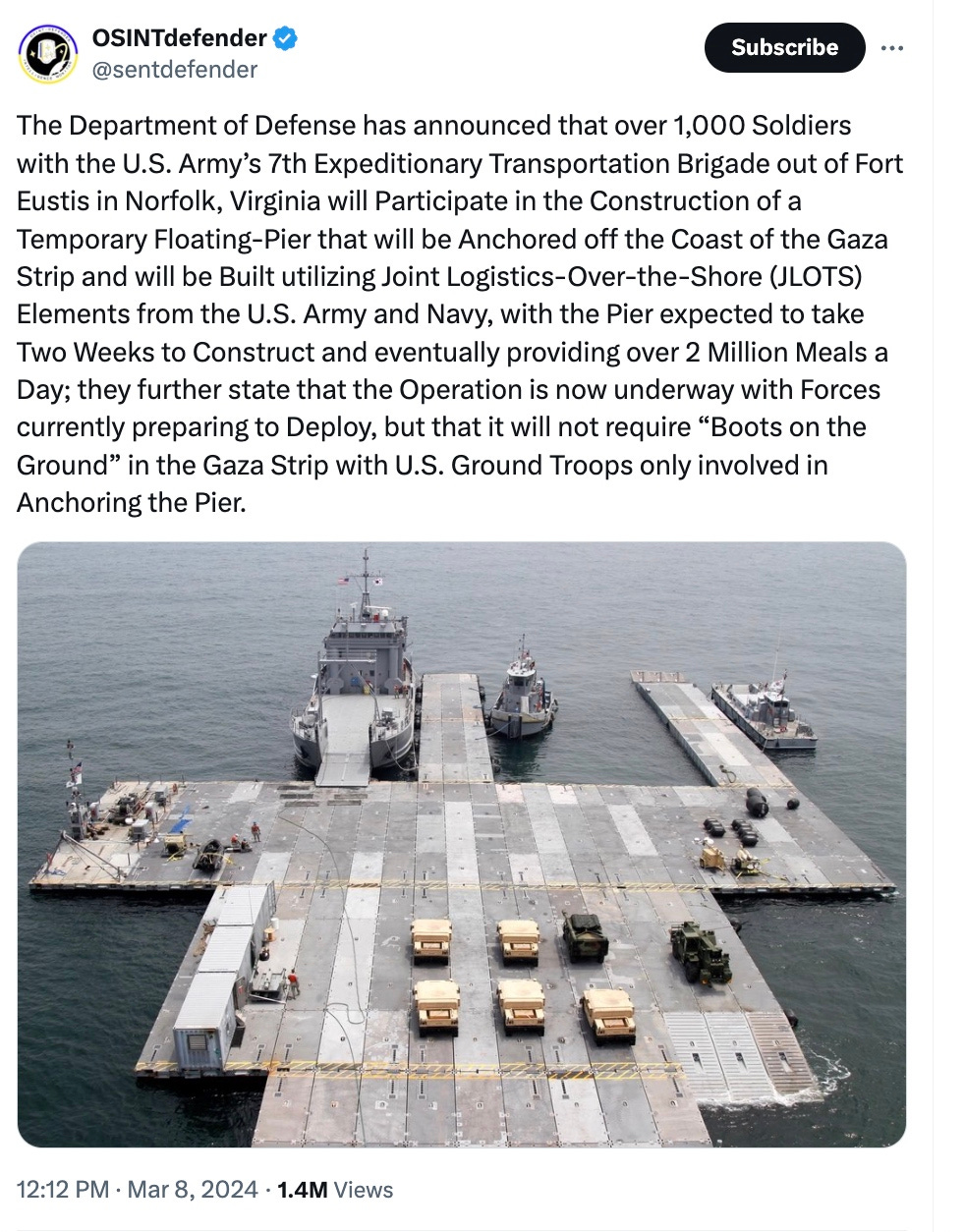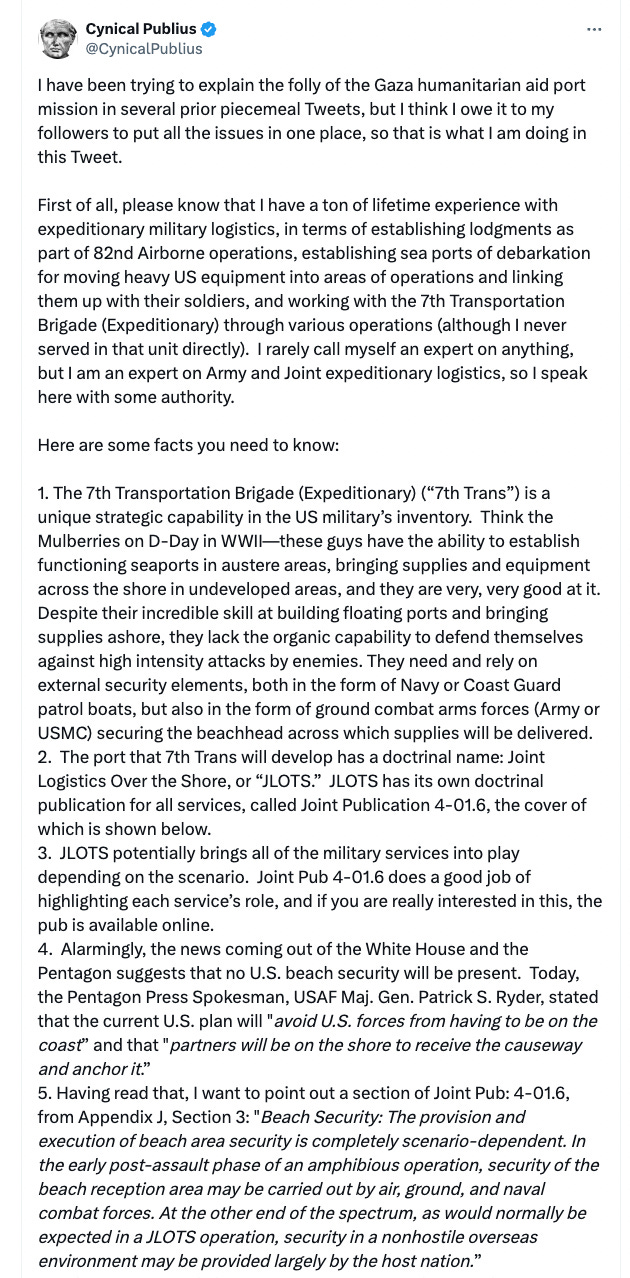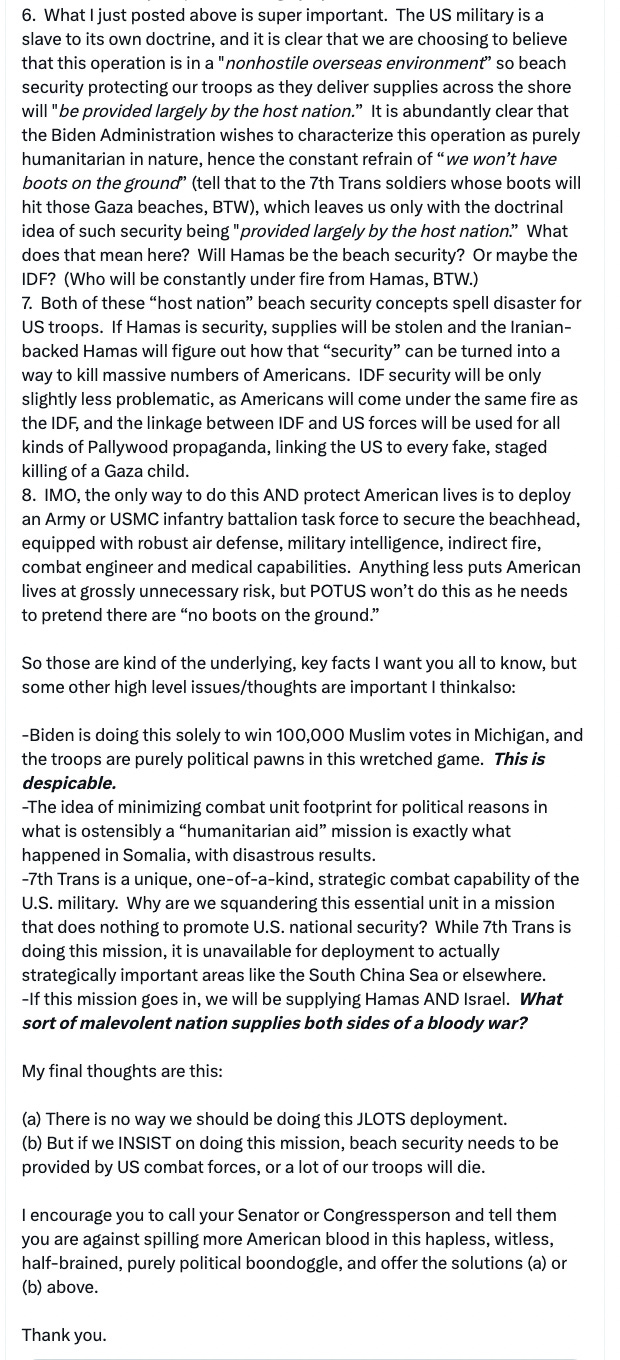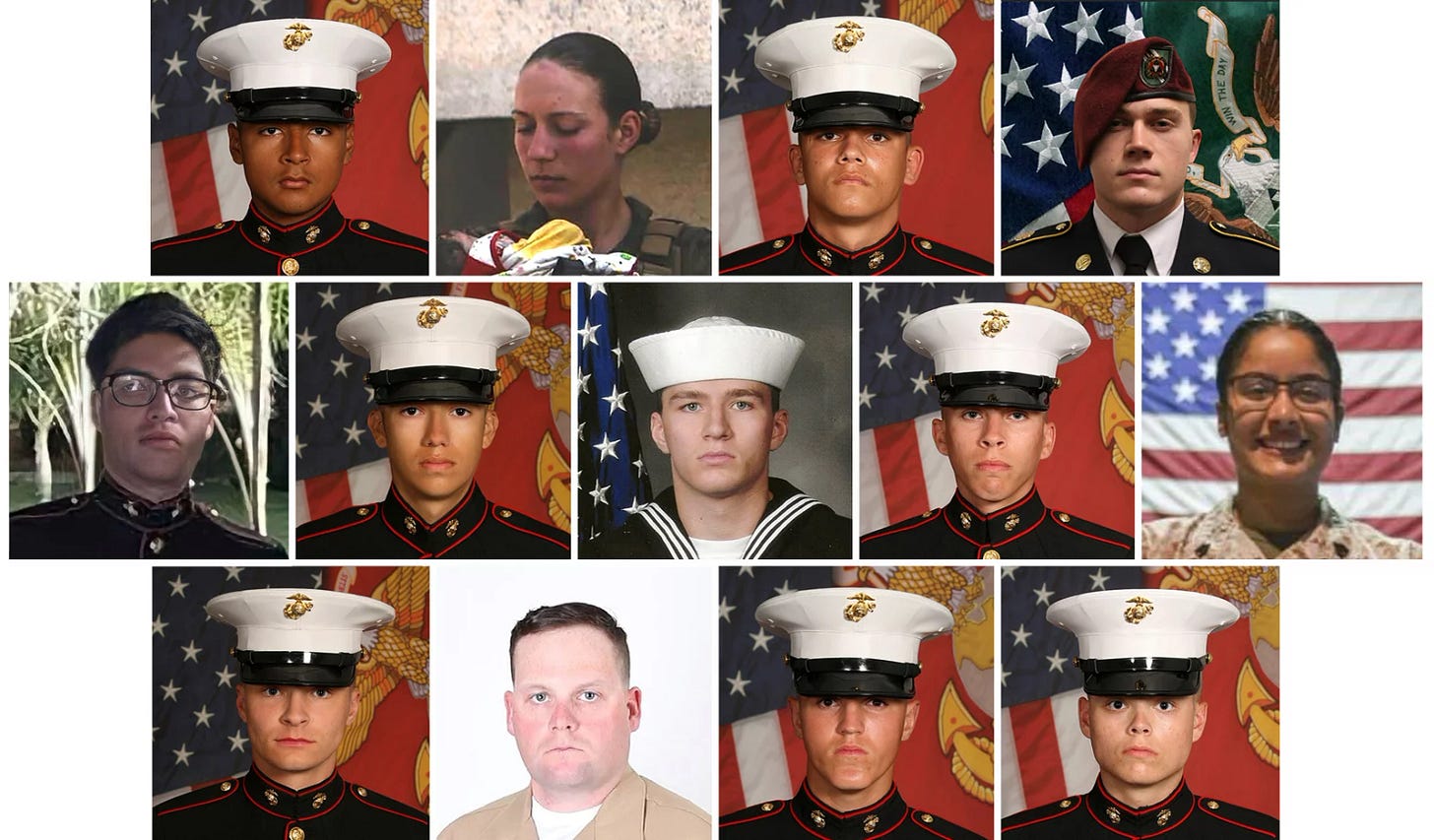Keep An Eye On This Military Development
because it doesn't look great
The Pentagon has said something that should make us all sit up and pay attention.
Quick background first:
Elements of the US Army’s 7th Transportation Brigade are on the way to Gaza. Sample news story:
They won’t be in Gaza, but they’ll be just offshore — a few hundred yards from Gaza. Now read this, and take the time to read it closely. I’ll split it into two screencaps to get it all in, which will be awkward to look at, but you can just click on the link to see it all whole (and subscribe to keep up with “Cynical Publius” as all of this develops):
The extremely important part of all of that is that transportation troops aren’t combat arms troops; they’re armed for some degree of self-protection, but “they lack the organic ability to defend themselves against high-intensity attacks by enemies.” In a hostile environment, they need to be screened: they need to be protected by combat-focused forces, both on-shore and off. They need infantry in front of them, warships behind them, and aircraft overhead.
Now, via this account, look at this transcript of an…interesting Pentagon press briefing on March 8, in which a major general talks at length about the security plan for the 7th Transportation Brigade when it gets to Gaza. Sample exchange:
Q: (Inaudible) partner nations on the ground, but you're talking about operational security, you can't discuss what will be (inaudible).
GEN. RYDER: Right. I mean, we will — these forces will have the capability to provide some organic security. I'm just not going to get into the specifics of that.
But they don’t — or they do, but the capability of transportation troops, from a combat service support branch, is extremely limited. Again, these are not combat arms troops, and aren’t armed or trained as combat arms troops. Talking about their organic security capability is an interesting choice. Then look at this exchange, which I’ll shorten a bit in the excerpt (with emphasis added), but you can find it unedited at the transcript link:
Q: (Inaudible) why Israel is holding up the ground convoys filled with aid is that they say that they don't want the aid to go to Hamas. Does that risk remain with this maritime solution, or is this somehow more acceptable to the Israelis? And will they be inspecting any of the aid from Cyprus?
GEN. RYDER: So, Anne, again, much more to provide in the days ahead. But as part of this, concept, you know, a consideration is the screening aspect of aid being loaded onto any vessel, you know, which would be standard procedure….
But I think the key point here is that if Hamas truly believes that the people, the Palestinian people are suffering, then why would they want to take this aid and use it for themselves to support their terrorist organization? Or do they truly care about the Palestinian people and want this aid to get to them? So, one would hope that this aid will get to the people that are most deserving and in need.
Q: Just to confirm that that risk remains the same whether these aid convoys come through via ship or ground?
GEN. RYDER: Well, it's a combat zone, right? And you've got active combat operations going on with Hamas near. I mean, to your point, we've seen reports in the past about Hamas taking aid as well as criminal elements that are attempting to hoard. But this mission is about getting aid to Gaza, and then working with others for the delivery and distribution.
Q: Does the DoD anticipate that Hamas will try to fire on them, on the operation (inaudible)?
GEN. RYDER: Look, I mean, that's certainly a risk, again, but if Hamas truly does care about the Palestinian people, then again, one would hope that this international mission to deliver aid to people who need it would be able to happen unhindered.
It’s all hope, and assumes the best from Hamas. Q: Does the DoD anticipate that Hamas will try to fire on them? A: One would hope that it would be able to happen unhindered.
Surely the American military is planning this effort with an understanding that Hamas might shoot at them, and certainly the Pentagon isn’t detailing their entire security plan in public. But the people who planned the withdrawal from Afghanistan seem to be hoping that they can send lightly armed troops to the edge of a war and hope that everyone is nice to them, at least in part because their politically driven orders are suggesting that approach to them.
We’ll see. Hoping that the actual plan is much less naive than the public description.






Outstanding column. I'm calling Port Gaza "Beirut 2." I commanded the SpecWar Det in Beruit in the spring of 83 and I have intimate awareness of the problems crossing the beach into an insecure politically senstivive environment. Another factor not mentioned yet: There is 1,200 miles of open sea "fetch" west of Gaza. In Beirut we had storms that put 8 foot breaking surf on the beach and wrecked the LST-provided "causeway section" pier. It will be summer by the time this fiasco is in swing, but a strong westerly cannot be ruled out in any month. This is not the Chesapeake Bay.
Highly recommended new video by "What's Up With Shipping" on "Port Gaza" aka "Beirut 2"
https://www.youtube.com/watch?v=98_gzyt9N-Y&ab_channel=WhatisGoingonWithShipping%3F